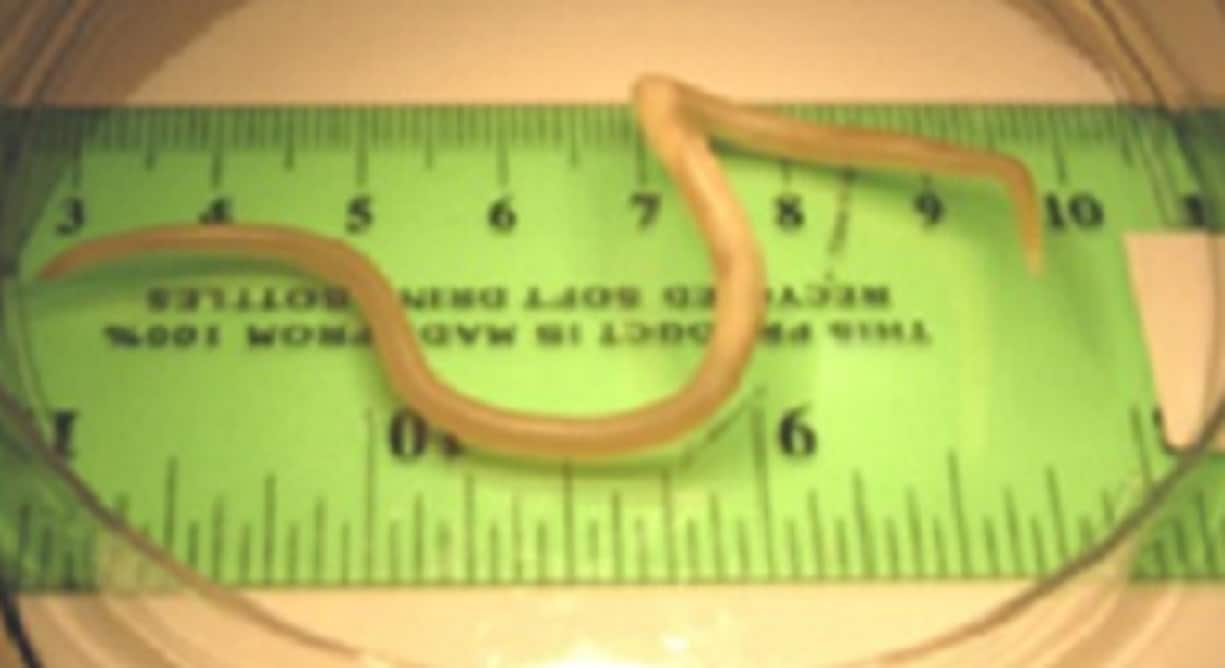Key points
- Ascaris is the most common worm parasite found in humans. It lives in people's small intestine.
- This parasite spreads through contaminated soil (soil that contains the parasite).
- Ascaris infection is treatable with medication.
- Ascaris infection is sometimes called ascariasis.

Overview
The human roundworm Ascaris lumbricoides, sometimes just called Ascaris or ascariasis, is a parasitic worm that infects an estimated 772–892 million people globally. Ascaris, along with whipworm and hookworm, is a soil-transmitted helminth (STH). The larvae (immature worms) and adult forms of the parasite live in a person's intestines. People get ascariasis by consuming contaminated soil. Most cases occur in tropical and subtropical areas of Asia, sub-Saharan Africa, and the Americas.
Symptoms
Some people infected with ascariasis have either few or no symptoms at all.
People who do have symptoms can experience abdominal discomfort or pain. Heavy infections (caused by a high number of worms) are more common in children, can block the intestines, and can slow growth in children. Other symptoms such as cough are due to migration of the worms through the body.
Causes
A person infected with Ascaris passes the parasite eggs in their feces (poop). If an infected person defecates (poops) outside, uses an unimproved sanitation facility (when there is no sanitary separation of human waste from human contact), or uses human feces as fertilizer, the eggs can get into the soil. Here they will grow into a form that is infective. People get ascariasis by consuming infective eggs found in contaminated soil.
Prevention
To lower your risk of getting ascariasis
- Wash your hands with soap and water after going to the bathroom and before handling food.
- Wash, peel, and cook raw fruits and vegetables.
- Avoid soil or water contaminated with human feces (poop).
To prevent spreading Ascaris infection to others in a community setting
- Do not defecate outdoors, if possible,
- Use improved sanitation facilities, if available, to ensure separation of human waste from human contact, and
- Do not use human feces as fertilizer for crops.
- Teach children the importance of handwashing to prevent infections.
